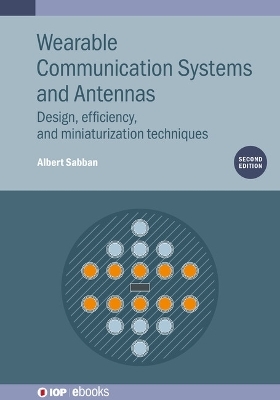
Machine Learning for Future Fiber-Optic Communication Systems
Academic Press Inc (Verlag)
978-0-323-85227-2 (ISBN)
With up-to-date coverage and extensive treatment of various important topics related to machine learning for fiber-optic communication systems, this book is an invaluable reference for photonics researchers and engineers. It is also a very suitable text for graduate students interested in ML-based signal processing and networking.
Alan Pak Tao Lau received his B.A. Sc in Engineering Science (Electrical Option) and M.A.Sc. in Electrical and Computer Engineering from University of Toronto in 2003 and 2004, respectively. He obtained his Ph.D. in Electrical Engineering at Stanford University in 2008 and has joined the Hong Kong Polytechnic University where he is now a Professor. He was also a Visiting Professor at Stanford University in 2019. His research covers system characterization, performance monitoring, digital signal processing and machine learning applications of various optical communication systems and networks. He collaborates with industry and serves as technical program committee chairs of major conferences in Optical Communications and as Associate editor of Journal of Lightwave Technology since 2018. Faisal Nadeem Khan received the B.Sc. degree in electrical engineering (with Honours) from the University of Engineering and Technology Taxila, Pakistan, the M.Sc. degree in communications technology from the University of Ulm, Germany, and the Ph.D. degree in electronic and information engineering from The Hong Kong Polytechnic University, Hong Kong. He worked as a Senior Lecturer at the School of Electrical and Electronic Engineering of the University of Science Malaysia. He had also been a Research Fellow at the Photonics Research Centre, The Hong Kong Polytechnic University. Currently, he is an Associate Professor at Tsinghua-Berkeley Shenzhen Institute, Shenzhen International Graduate School, Tsinghua University. His research interests include machine learning and digital signal processing techniques for optical communication systems and networks. He has authored or coauthored around 60 research articles in leading journals (including several invited papers) and key conferences as well as written two book chapters. He has been an invited speaker at various prestigious international conferences including Optical Fiber Communication (OFC), European Conference on Optical Communication (ECOC) and Signal Processing in Photonic Communications (SPPCom), among others.
1. Background introduction of ML techniques for optical communications
2. ML techniques for long-haul systems
3. ML techniques for IM/DD systems
4. ML techniques for passive optical networks
5. ML for end-to-end learning of complete fiber-optic communication system
6. ML methods for QoT estimation and optical performance monitoring
7. ML-based adaptive network resources allocation, control and management
8. ML-assisted cognitive network fault protection and management
9. ML for cross-layer optimizations and automated network operation in SDNs
10. ML for network security management, and attacks and intrusions detection
11. ML for low-margin optical networking
12. ML for quantum optical communication systems
13. ML for intelligent testing and measurement equipment
14. ML for design and optimization of photonic devices and sub-systems
15. ML for channel coding
| Erscheinungsdatum | 18.02.2022 |
|---|---|
| Verlagsort | Oxford |
| Sprache | englisch |
| Maße | 191 x 235 mm |
| Gewicht | 840 g |
| Themenwelt | Technik ► Nachrichtentechnik |
| ISBN-10 | 0-323-85227-0 / 0323852270 |
| ISBN-13 | 978-0-323-85227-2 / 9780323852272 |
| Zustand | Neuware |
| Haben Sie eine Frage zum Produkt? |
aus dem Bereich


